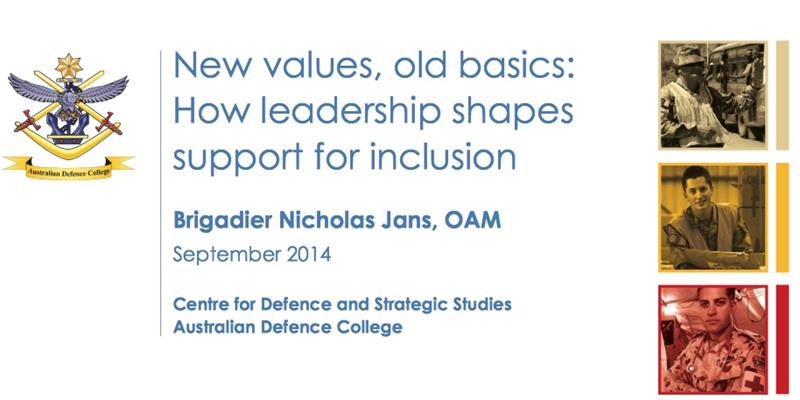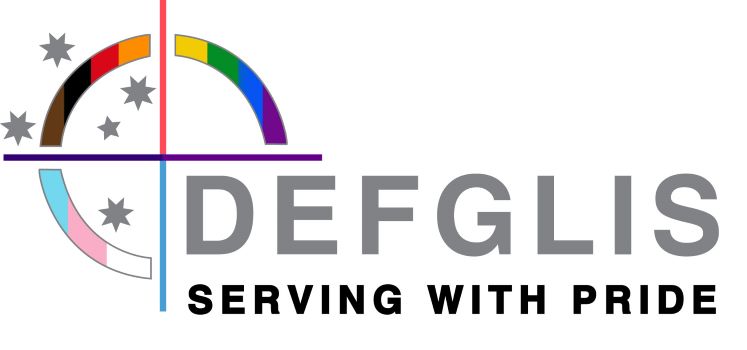
The commissioned report on leadership literature and inclusion by Brigadier Nicholas Jans, OAM titled New values, old basics: How leadership shapes support for inclusion, discusses the challenges that the ADF has in the battle of returning to its ‘roots’ and establishing a diverse workforce where equality is embraced and encouraged by all personnel.
The report opens by identifying the pertinence of ‘accepting individual responsibility for one’s own behavior, assisting others to live the culture, and putting the onus on leaders to be exemplars of positive and visible change at all times’. Furthermore the report summarises with four main outcomes, these are:
- Support for inclusion through ethical attitudes/values amendable to leadership influence;
- Senior leadership setting the agenda and the role of middle level officers to implement and execute the end user organisational change management;
- Change through a return to our fundamental foundation in order to re-establish ‘true’ group identity; and,
- The essential role of leaders at all levels embodying the change in order to establish a leader-follower process to instigate change with the ‘3Rs’ model of Reflect, Relate and Reinforce.
The message from senior command is unanimous and reflects the Chief of Army’s speech of June 2013, calling for actions from all levels. It is noted by BRIG Jans that the ADF has significant boundaries to overcome before we can achieve these new organizational expectations, further to this is the reaffirmation that the ADF is not attempting to re-brand itself in light of recent perceived ‘bad media’ but more so embrace our corps values that form the foundations of the ADF.
The report highlights significant challenges in having effect over some unsupportive attitudes held among the male majority. Taking the ADF down the inclusion pathway presents significant challenge, yet BRIG Jans suggests that the only way to start any form of reform is through the ‘3Rs’ of Reflect, Relate and Reinforce.
Members falling within any form of minority group are at a higher area of risk to receive aggression towards themselves, frequently in the form of misogynistic jokes. According to the report areas of key concern to the ADF are both training establishment and combat units.
Junior officers are identified as critical for the success of any reform. As many junior officers are still at early stages of moral maturity, they can be susceptible to embodying informal norms and stereotypic prejudices through peer pressure and the use of social media. It is noted that there is only limited research into the effects that social media play, this is currently under review.
Under the ‘ethical manager’ we must make the shit to re-identify our ‘true identity’. BRIG Jans compares our job ahead with that of Sir Winston Churchill during WWII when he was able to remind Britons at their darkest times both who they were, what they were and what they were capable of, and ultimately, evoking the finest of traditions. Likewise, this is the reaffirmation that we must embrace in order to re-allign ourselves with our organizational corps values.
In conclusion we are reminded the ADF is founded of the finest of traditions and culture. Officers at all levels must embody the ‘3Rs’ - Reflect, Relate and Reinforce as a full time job and learn to relate to their subordinates, but also to allow themselves to be free of prejudice and open to personal development.
